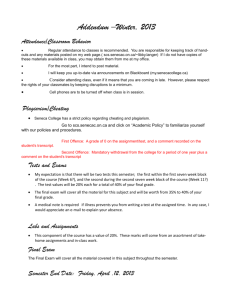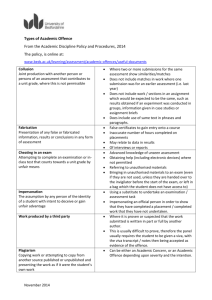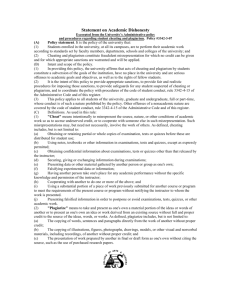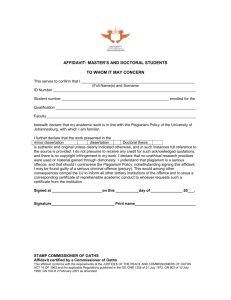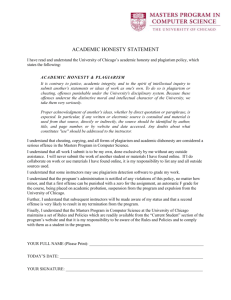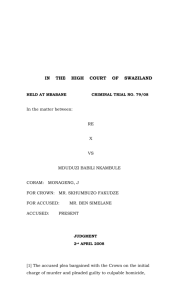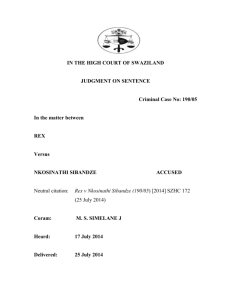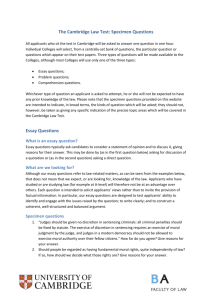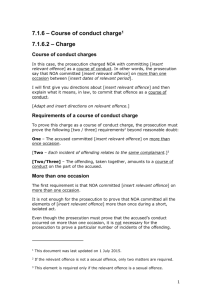When does help become cheating?
advertisement
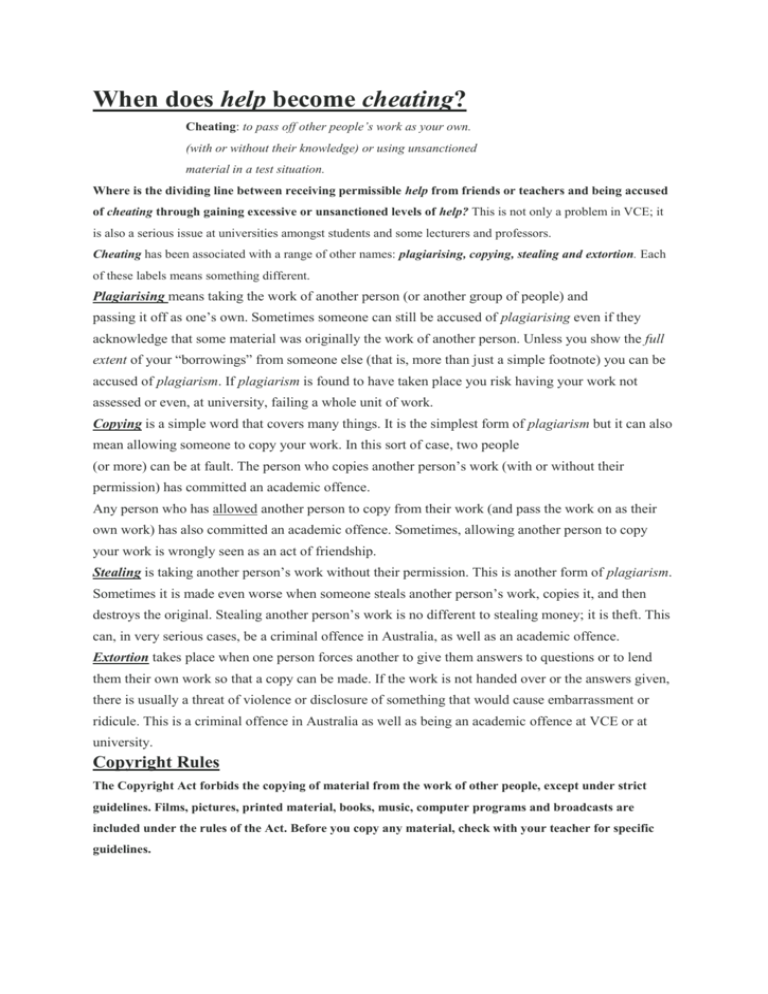
When does help become cheating? Cheating: to pass off other people’s work as your own. (with or without their knowledge) or using unsanctioned material in a test situation. Where is the dividing line between receiving permissible help from friends or teachers and being accused of cheating through gaining excessive or unsanctioned levels of help? This is not only a problem in VCE; it is also a serious issue at universities amongst students and some lecturers and professors. Cheating has been associated with a range of other names: plagiarising, copying, stealing and extortion. Each of these labels means something different. Plagiarising means taking the work of another person (or another group of people) and passing it off as one’s own. Sometimes someone can still be accused of plagiarising even if they acknowledge that some material was originally the work of another person. Unless you show the full extent of your “borrowings” from someone else (that is, more than just a simple footnote) you can be accused of plagiarism. If plagiarism is found to have taken place you risk having your work not assessed or even, at university, failing a whole unit of work. Copying is a simple word that covers many things. It is the simplest form of plagiarism but it can also mean allowing someone to copy your work. In this sort of case, two people (or more) can be at fault. The person who copies another person’s work (with or without their permission) has committed an academic offence. Any person who has allowed another person to copy from their work (and pass the work on as their own work) has also committed an academic offence. Sometimes, allowing another person to copy your work is wrongly seen as an act of friendship. Stealing is taking another person’s work without their permission. This is another form of plagiarism. Sometimes it is made even worse when someone steals another person’s work, copies it, and then destroys the original. Stealing another person’s work is no different to stealing money; it is theft. This can, in very serious cases, be a criminal offence in Australia, as well as an academic offence. Extortion takes place when one person forces another to give them answers to questions or to lend them their own work so that a copy can be made. If the work is not handed over or the answers given, there is usually a threat of violence or disclosure of something that would cause embarrassment or ridicule. This is a criminal offence in Australia as well as being an academic offence at VCE or at university. Copyright Rules The Copyright Act forbids the copying of material from the work of other people, except under strict guidelines. Films, pictures, printed material, books, music, computer programs and broadcasts are included under the rules of the Act. Before you copy any material, check with your teacher for specific guidelines.
